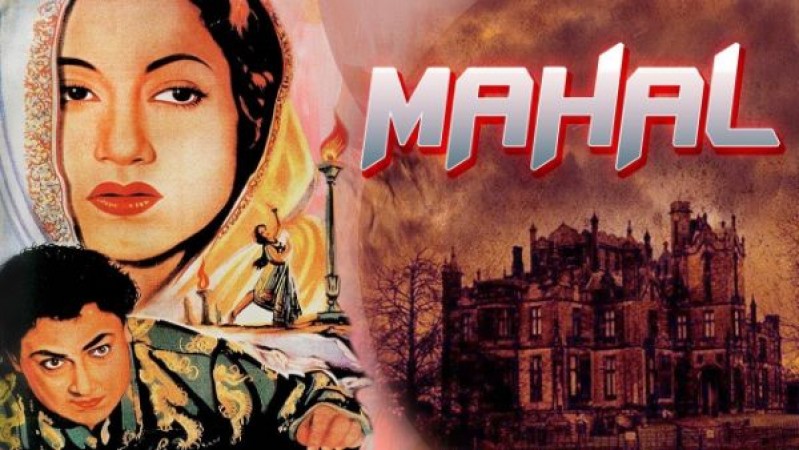
With a wide range of genres and styles, the Indian film industry is renowned for its diverse and prolific output. Horror film, on the other hand, got off to a somewhat later start in the entertainment world. It wasn't until 1949 that "Mahal," the country's first legitimate horror movie, was released to theaters in India. With Ashok Kumar and the alluring Madhubala as its leading men, "Mahal," which was directed by Kamal Amrohi, not only represented a watershed in Indian cinema but also catapulted Madhubala and playback singer Lata Mangeshkar into the stratosphere of fame. This article explores the significance of "Mahal" as the genre-defining horror film of India and as the inspiration behind the ascent of two enduring figures in the country's entertainment sector.
Indian cinema had, until "Mahal," mainly specialized in genres like romance, drama, and mythology. Horror was a relatively uncharted genre with its distinct blend of suspense, paranormal elements, and spine-tingling thrills. However, Kamal Amrohi dared to travel this untrodden path and set out to make a movie that would linger in the minds of viewers for years to come.
The movie "Mahal" starts with a lawyer, Ashok Kumar, showing up at the run-down mansion "Mahal." He finds himself drawn to the mansion for no apparent reason, and he soon finds himself entranced by a stunning woman, played by Madhubala, who appears to be a spectral presence. The plot develops, revealing a tale of tragic love, vengeance, and the supernatural that keeps the audience guessing right up to the very end.
Moviegoers' imaginations were captured by the film's eerie atmosphere, eerie music, and the mysterious presence of Madhubala as the ghostly beauty. Lata Mangeshkar's haunting rendition of the song "Aayega Aanewala" added to the film's atmosphere of mystery and romance.
The movie "Mahal" was a revelation in India. It introduced them to a genre that had not previously received much attention in the nation's film industry. The success of the movie heralded the beginning of Indian horror cinema and roused filmmakers' interest in the macabre and supernatural.
The meteoric rise of Madhubala was one of the most important effects of "Mahal." Her performance as the ethereal and mysterious beauty in "Mahal" not only demonstrated her acting talent but also propelled her to stardom. Madhubala's captivating on-screen persona and irresistible charm left a lasting impression on Indian cinema, elevating her to the status of a legendary figure.
The fact that "Mahal" made playback singer Lata Mangeshkar more well-known to a wider audience is another noteworthy result. Her eerily gorgeous performance of "Aayega Aanewala" became an instant hit and was essential in boosting the spooky mood of the movie. Lata Mangeshkar reached a significant turning point in her illustrious career with the release of this song, which helped her establish herself as one of the most renowned playback singers in Indian music history.
Ahead of its time, "Mahal" combined elements of romance, suspense, and the paranormal. It paved the way for the development of horror cinema in India and encouraged upcoming generations of directors to discover the genre's potential. The success of the movie made it possible for the Indian film industry to experiment and tell creative stories.
As demonstrated in "Mahal," Madhubala's enduring beauty and acting prowess cemented her place among India's most adored actresses. The same can be said for Lata Mangeshkar, whose soulful voice and melancholy melodies, exemplified by "Aayega Aanewala," made her the voice of the country.
"Mahal" was more than just a movie; it marked a turning point in Indian cinema. It changed the face of Indian filmmaking forever by introducing audiences to the thrilling world of horror and suspense. Additionally, it served as a launching pad for Madhubala and Lata Mangeshkar, two legendary figures in the Indian entertainment sector.
As the first true horror movie in Indian cinema, "Mahal" sparked a wave of interest in the genre among many other directors. Its legacy lives on, reminding us of the strength of imagination, innovation, and the capacity of film to break down barriers and produce timeless icons. "Mahal" will always be regarded as a testament to the unyielding spirit of Indian filmmaking as well as a cinematic milestone.
Padmini Kolhapure: The Starlet Who Redefined Bollywood Stardom at 17
The Power of Simplicity: Raj Kapoor's Timeless Vision for 'Prem Rog'
Prem Rog, A Cinematic Gem Honored Among the Most Romantic Films